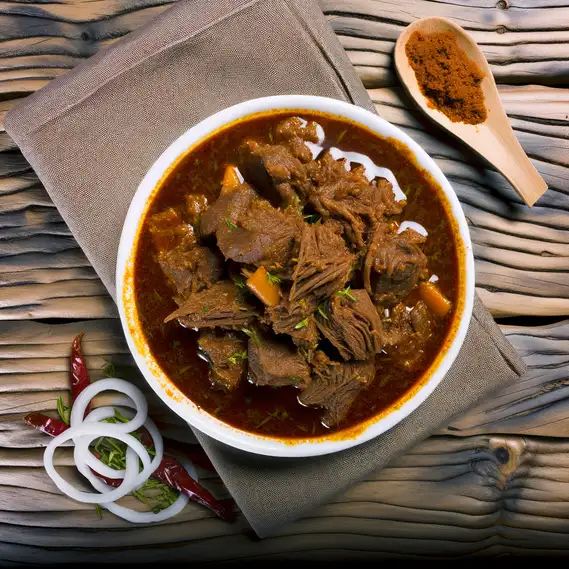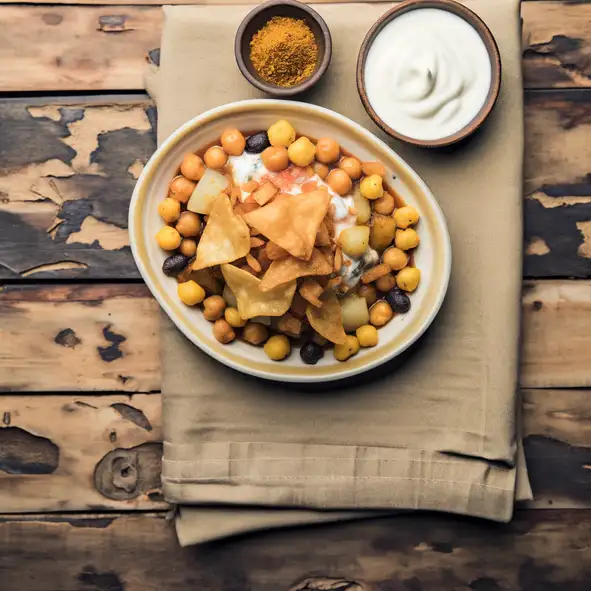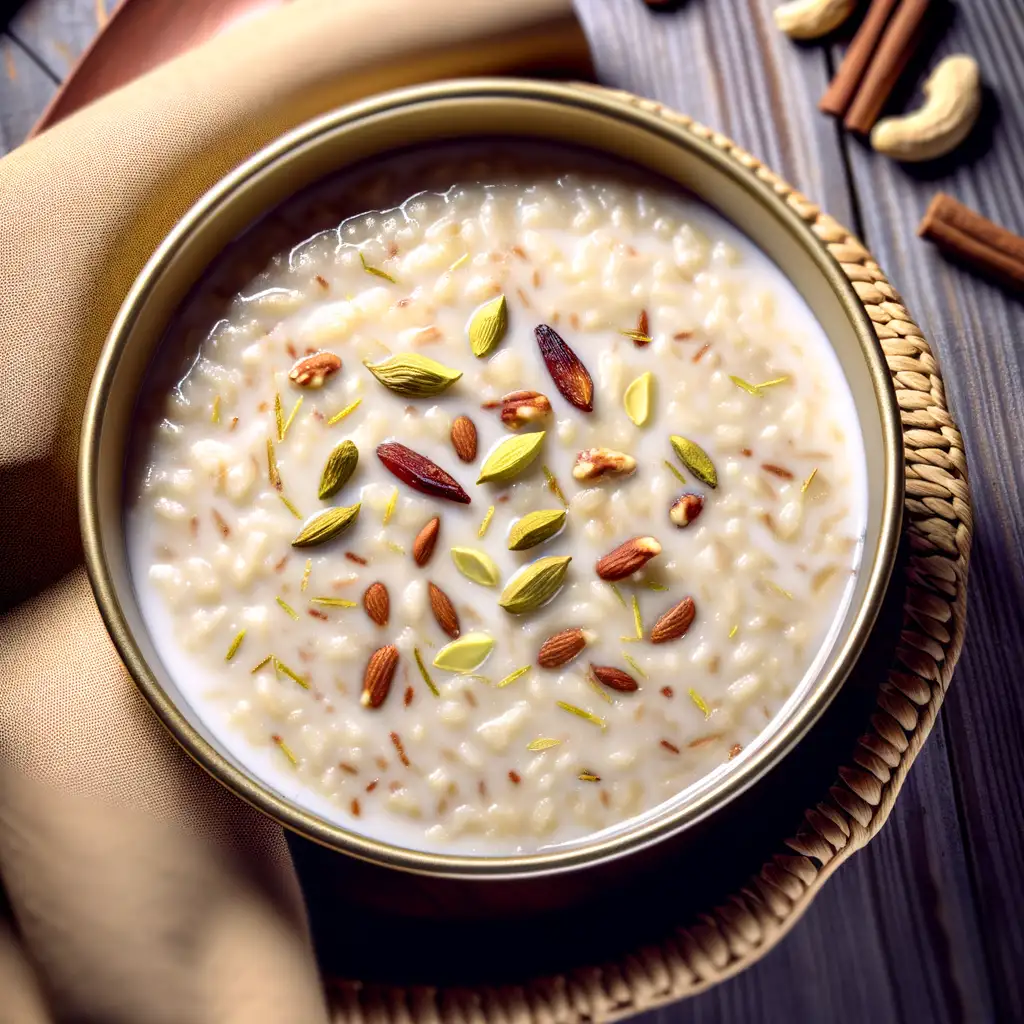



If you ever find yourself craving a place where history hums through the air and every street corner tells a story,Multan is where you want to be. The city has this warm,inviting pulse—like an old friend who’s seen centuries pass but still greets you with a smile. Walking through its bustling bazaars,you’re immediately wrapped in a tapestry of vibrant colors:the deep indigo of handcrafted pottery,the fiery reds of embroidered fabrics,and the golden glow of the sun setting over ancient brick walls. The scent of spices—cardamom,cumin,and a hint of rosewater—mingles with the earthy aroma of fresh mangoes,making your senses come alive. Multan’s character is deeply spiritual and soulful. It’s known as the City of Saints,and you can feel that reverence in the quiet courtyards of its shrines,where the soft murmur of prayers blends with the gentle flutter of birds. The city’s people are warm and welcoming,eager to share stories over a cup of sweet,milky chai or a plate of sizzling,fragrant kebabs. There’s a rhythm here,a blend of old-world charm and everyday life that feels both timeless and immediate. What really stays with you is the way Multan embraces you—not just as a visitor,but as someone stepping into a living,breathing mosaic of culture and history. It’s a place where the past and present dance together,inviting you to slow down,listen,and savor every moment.
The information on this page is currently being reviewed by Tripkliq and should be used as a guide only
Eng word: Hello
Eng pronunciation: Hello
Local language: ہیلو
Eng word: Goodbye
Eng pronunciation: Alvida
Local language: الوداع
Eng word: Thank you
Eng pronunciation: Shukriya
Local language: شکریہ
Eng word: How much
Eng pronunciation: Kinaan
Local language: کناں
Eng word: Toilet
Eng pronunciation: Toilet
Local language: ٹوائلٹ
Eng word: Help me
Eng pronunciation: Madad Karo
Local language: مدد کرو
Eng word: Yes
Eng pronunciation: Haan
Local language: ہاں
Eng word: No
Eng pronunciation: Na
Local language: نہ
Eng word: Excuse me
Eng pronunciation: Maaf Karna
Local language: معاف کرنا
Multan is often referred to as the 'City of Saints' due to the large number of Sufi shrines and mausoleums located throughout the city. These sites attract pilgrims and tourists from all over the world.
The Multan Fort, also known as Qila Kohna Qasim Bagh, is a historic fortification that dates back to ancient times. It has been a significant military and administrative center for various empires, including the Mughals and the British.
The Shrine of Bahauddin Zakariya is one of the most important Sufi shrines in Multan. Bahauddin Zakariya was a renowned Sufi saint of the Suhrawardiyya order, and his shrine is a major pilgrimage site.
Hussain Agahi Bazaar is one of the oldest and busiest markets in Multan. It offers a vibrant shopping experience with a wide range of traditional crafts, textiles, and local delicacies.
Multan is famous for its unique blue pottery, which features intricate designs and vibrant blue hues. This traditional craft has been passed down through generations and is a popular souvenir for visitors.
The Tomb of Shah Rukn-e-Alam is an architectural marvel and a UNESCO World Heritage Site. It is the final resting place of the Sufi saint Shah Rukn-e-Alam and is known for its stunning design and intricate tile work.
Multan is one of the oldest cities in South Asia, with a history that dates back over 5,000 years. It has been a center of culture, trade, and religion for various civilizations, including the Indus Valley Civilization and the Persian Empire.
The Eidgah Mosque is a historic mosque in Multan that dates back to the Mughal era. It is known for its beautiful architecture and serves as a major site for Eid prayers and other religious gatherings.
Multan is renowned for its delicious mangoes, particularly the Chaunsa and Anwar Ratol varieties. The city's fertile soil and favorable climate make it an ideal location for mango cultivation, and the fruit is exported worldwide.
In Multan, the most common Power Adaptor is Type C, Type D.



A slow-cooked stew made with beef or lamb, Nihari is typically enjoyed for breakfast and is known for its rich, spicy flavor and tender meat.

A popular street food, Multani Chaat is a savory snack made with a mix of potatoes, chickpeas, yogurt, and tangy chutneys, topped with spices.

A traditional rice pudding made with milk, sugar, and rice, Kheer is often flavored with cardamom and garnished with nuts, making it a popular dessert.

A traditional sweet made from wheat, sugar, ghee, and milk, Sohan Halwa is a famous delicacy of Multan, known for its rich flavor and unique texture.

A flavorful rice dish made with marinated chicken, aromatic spices, and basmati rice, Multani Chicken Biryani is a must-try for biryani lovers.

Minced meat skewers seasoned with spices and grilled to perfection, Seekh Kebabs are a popular appetizer or main dish in Multan.

A local favorite, Bun Kebab consists of a spiced meat patty served in a bun, often accompanied by chutney and salad.
Karachi feels like a city that never quite sleeps,buzzing with an energy that’s both chaotic and captivating. The moment you step out,you’re greeted by a symphony of sounds—the honking of rickshaws weaving through traffic,the distant call of street vendors,and the rhythmic chatter of people bargaining in bustling markets. The salty breeze from the Arabian Sea mingles with the rich aroma of spices and sizzling street food,making your senses come alive in the best way.
What’s truly special about Karachi is its vibrant patchwork of cultures and histories. You’ll find centuries-old colonial architecture standing shoulder to shoulder with modern skyscrapers,while neighborhoods pulse with life—from the colorful stalls of Empress Market to the artistic murals in Clifton. The city’s heart beats in its people,warm and welcoming,always ready to share stories over a cup of chai or a plate of spicy biryani that lingers on your tongue long after the meal.
Walking along the seaside at Clifton,you can feel the city’s contrasts—the cool ocean breeze against the backdrop of a sprawling metropolis. Karachi is messy,loud,and sometimes overwhelming,but it’s also fiercely alive and endlessly fascinating. It’s a place where every corner tells a story,and every meal feels like a celebration. If you’re up for an adventure that’s raw,real,and deeply human,Karachi will surprise you in the best ways.
A port city on the Arabian Sea,Gwadar is famous for its pristine beaches,the Hammerhead Peninsula,and the nearby Astola Island,Pakistan's only significant offshore island.
ExploreImagine stepping into a place where the future meets tradition in the most dazzling way—that’s Dubai for you. The moment you arrive,there’s this electric buzz in the air,a mix of ambition and warmth that’s impossible to ignore. Skyscrapers like the Burj Khalifa stretch into the sky,shimmering glass and steel reflecting the golden desert sun,while just a few streets away,you can wander through bustling souks filled with the scent of exotic spices and the chatter of friendly vendors. It’s a city that never feels cold or impersonal,even with its towering modernity.
Walking along the Marina at sunset,you’ll hear the gentle lapping of water against sleek yachts,the distant hum of conversations in dozens of languages,and the occasional call to prayer weaving through the air,grounding you in the city’s rich cultural tapestry. The food scene is a vibrant adventure—imagine tasting freshly grilled shawarma,sweet dates,and rich Arabic coffee,each bite telling a story of the region’s heritage and its global influences.
What really makes Dubai stand out is its fearless spirit. It’s a place where desert dunes meet luxury shopping,where traditional falconry coexists with indoor ski slopes,and where every corner invites you to explore something unexpected. Whether you’re marveling at art installations in Alserkal Avenue or catching the cool breeze on a dhow cruise,Dubai feels alive,inviting you to be part of its ever-evolving story.
The capital of the Maldives,Malé is the gateway to the country's stunning islands,famous for their white sandy beaches,turquoise waters,and world-class resorts.
ExploreDoha feels like stepping into a vibrant blend of tradition and modernity,where the desert meets the sea in the most unexpected ways. Imagine walking along the Corniche at sunset,the warm breeze carrying the faint scent of spices from nearby souks,while sleek skyscrapers shimmer against the fading light. The city hums with a quiet energy—call to prayers echo softly,mingling with the chatter of locals and the distant hum of luxury cars. It’s a place where the past and future coexist,inviting you to explore both ancient culture and cutting-edge design.
Wandering through the narrow alleys of Souq Waqif,you’ll be enveloped by the rich aroma of frankincense and cardamom,while colorful textiles and handcrafted wares spill from every stall. The lively banter of shopkeepers and the clinking of tea glasses create a warm,welcoming atmosphere that feels deeply personal. Then,just a short drive away,the Museum of Islamic Art stands like a jewel on the waterfront,its architecture as breathtaking as the treasures inside.
What really makes Doha special is its pace—there’s a calm confidence here,a city that’s growing fast but still holds onto its roots. Whether you’re savoring fresh seafood by the water,feeling the soft sand beneath your feet on a desert safari,or simply watching the city lights dance on the bay,Doha invites you to slow down and soak it all in. It’s a place that surprises you,not with loud fanfare,but with quiet moments that linger long after you’ve left.
If you step into Colombo District,you immediately feel the pulse of a city that’s both vibrant and laid-back,where old-world charm meets modern hustle. Imagine walking along bustling streets lined with colonial-era buildings,their faded facades telling stories of a rich past,while sleek glass towers rise nearby,reflecting the tropical sun. The air carries a mix of scents—spices from street food stalls,salty sea breeze from the nearby coast,and the faint aroma of jasmine from roadside vendors. It’s a place where the sounds of honking tuk-tuks blend with the call to prayer and the laughter of children playing in small parks.
Colombo’s character is a beautiful mosaic of cultures. You’ll find Buddhist temples nestled beside mosques and churches,and markets where Tamil,Sinhalese,and Muslim communities come together in a colorful dance of languages and traditions. The city’s food scene is a feast for the senses—imagine biting into a crispy hopper drizzled with coconut sambol or sipping on a strong,sweet Ceylon tea while watching the sunset over Galle Face Green,where locals fly kites and families gather to unwind.
What makes Colombo truly special is its warmth. Despite the city’s fast pace,there’s a genuine friendliness in the smiles of shopkeepers and the inviting chatter in cafés. It’s a place where you can lose yourself in vibrant street art one moment and find quiet reflection in a serene temple garden the next. Colombo isn’t just a destination; it’s an experience that stays with you long after you leave.
Tourists may be sold fake or low-quality handicrafts, claiming they are authentic Multani artifacts.
Unlicensed money exchangers may offer poor exchange rates or shortchange tourists during transactions.
Scammers may approach tourists asking for donations for fake charities or causes.
Individuals posing as tour guides may offer their services and charge high fees while providing little to no value.
Tourists may be lured into booking accommodations that do not exist or are of much lower quality than advertised.
Some restaurants or street vendors may charge tourists significantly higher prices than locals for the same items.
Drivers may overcharge tourists by not using meters or quoting inflated prices for short distances.
Tourists may fall victim to pickpocketing in busy markets or public spaces like Hussain Agahi Bazaar.
Organized groups may use children or elderly individuals to solicit money from tourists under false pretenses.
Some operators may offer cheap tours but fail to deliver on promises, such as skipping key attractions or providing subpar services.
The use, possession, and trafficking of drugs are strictly prohibited in Pakistan under the Control of Narcotic Substances Act,1997. Penalties for drug-related offenses are severe and can include long prison sentences and heavy fines. Tourists should avoid any involvement with illegal drugs to avoid serious legal consequences.
In Multan, Pakistan, smoking is regulated under the Prohibition of Smoking and Protection of Non-Smokers Health Ordinance,2002. Smoking is prohibited in public places such as hospitals, educational institutions, public transport, and government offices. Violations can result in fines. Tourists should be mindful of designated smoking areas and avoid smoking in restricted zones to avoid penalties.
Vaping is relatively new in Pakistan and is not as strictly regulated as smoking. However, it is generally advised to follow the same rules as smoking. Vaping in public places where smoking is prohibited may attract attention and potential fines. Tourists should exercise caution and use vaping devices in designated smoking areas.
What are other people saying about Multan?
Recent Social posts about Multan
There is nothing to show you for now.